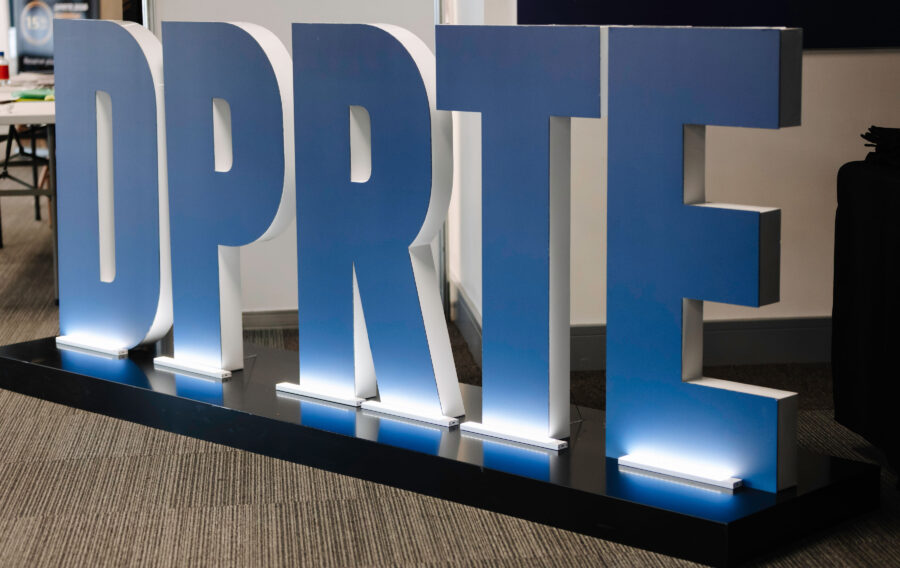
Held on 26–27 March 2025 at Farnborough International Exhibition & Conference Centre, DPRTE 2025 marked a significant evolution for the UK’s flagship defence procurement event. Expanding to a two-day format for the first time, the event offered delegates an extended opportunity to hear from leading voices across the defence landscape, discover innovative technologies, and foster meaningful industry connections.
This year’s summit came at a pivotal moment, following the government’s announcement of a £2.9 billion increase in defence spending for 2026, with a further £2.2 billion to follow in 2027. For organisations operating across the defence supply chain—from major contractors to agile SMEs—this renewed investment signals a wealth of opportunity to support national security while driving industrial innovation and growth.
DPRTE 2025 Supply Chain and Partnering Zone: Shaping a Resilient, Inclusive and Forward-Looking Defence Ecosystem
The Supply Chain and Partnering Zone at DPRTE 2025 offered a vital platform for defence suppliers to gain insight into the evolving demands of a modernised and resilient defence supply chain. With the UK defence sector entering a transformative phase—driven by the Strategic Defence Review and the Defence Industrial Strategy Statement of Intent—this year’s programme provided valuable direction for organisations looking to contribute meaningfully to the future of UK defence capability.

Across the two-day agenda, speakers from leading defence organisations and supporting institutions—including BAE Systems, Thales, Ministry of Defence, ADS Group, Airbus, Moody’s Analytics UK Ltd, MBDA, KBR, OutBritain & OutScotland, Babcock International Group, and Make UK Defence—explored the challenges and opportunities facing suppliers in an increasingly complex operating environment.
Strategic Collaboration and Supplier Integration
At the heart of the discussions was the need to foster purposeful collaboration across the entire defence ecosystem. BAE Systems highlighted the scale of its operations, with a global spend of £15 billion and over 21,000 directly contracted suppliers. Their presentation underscored the need to share opportunities and mitigate risks through joint planning and clearer communication with the supplier base.
“Understanding expectations” was a key takeaway for SMEs, as was the importance of clearly defining your position in the supply chain and demonstrating readiness for defence work.
This message was echoed by Babcock International Group, who demonstrated their evolving Supplier Relationship Management (SRM) framework. Their approach emphasises long-term value creation through shared objectives, transparent communications, and consistent performance tracking. Their “Voice of the Supplier” survey and treatment strategies based on relationship complexity, criticality, and innovation potential offer a model for structured and strategic supplier engagement.
Supporting Diversity and Inclusive Supply Chains
A standout session by OutBritain and OutScotland addressed supplier diversity and social value. Their message was clear: a diverse supply chain strengthens the economy, supports inclusive growth, and builds resilience. With 99.9% of UK businesses classed as SMEs, the inclusion of LGBTQ+ owned enterprises and other minority-led suppliers was presented not just as a social good, but an economic imperative.
The presentation stressed the importance of ESG compliance and social value metrics under the Procurement Act 2023. Defence suppliers were encouraged to recognise that social impact is increasingly a decisive factor in contract awards and that proactive engagement with CSR and supplier diversity strategies can open new doors.

Building Resilience and Supply Chain Architecture
A key policy focus was the MOD’s Defence Supply Chain Capability Programme (DSCCP), presented by the Ministry of Defence’s Supply Chain Directorate. This comprehensive effort is designed to build an end-to-end understanding of defence supply chain architecture and risk management. The programme aims to improve supply chain visibility, proactively shape industrial capacity, and foster earlier and deeper collaboration with industry.
Suppliers learned how the MOD is segmenting markets, assessing supply chain risk, and creating new tools to engage suppliers earlier in the acquisition lifecycle. From modelling disruptions to developing scenario planning tools, the DSCCP represents a major evolution in the way the MOD manages its industrial relationships.
Market Engagement and SME Access
One of the central themes across the zone was improving access for SMEs and ensuring earlier engagement with the market. Updates from the MOD’s Market Engagement team revealed that work is underway to launch a Defence SME Support Hub—a long-anticipated initiative designed to reduce barriers to entry, provide tailored growth support, and give SMEs a clearer route into the defence supply chain. This complements broader reform efforts under the Defence Industrial Strategy and follows the government’s Spring Statement commitment to increase SME participation in defence procurement.
The evolving Market Engagement guidance, informed by workshops with industry, is being codified into a new Market Engagement Handbook, due for rollout later this year. Suppliers were advised to look out for further announcements and be prepared to take advantage of new routes into early dialogue with the MOD.
Insights on Risk, Cyber and Global Context
Moody’s Analytics UK Ltd provided an eye-opening session on how global trends—including geopolitical risk, trade wars, and cyber vulnerabilities—are reshaping the way suppliers should assess risk across their value chains. From sanctions evasion to shell company exposure, Moody’s stressed the importance of entity verification and unified risk management tools. As defence suppliers increasingly operate within complex international supply chains, understanding third-party and reputational risk is now as essential as technical capability.
Complementing this, Thales UK delivered a powerful message on sustainable procurement and the role of inclusive, low-carbon supply chains. Their SME Action Plan and regional procurement strategy highlighted how diverse suppliers can gain visibility and access to major defence programmes by aligning with ESG goals, carbon net-zero commitments, and responsible sourcing practices.
Innovation, Skills and Sector Growth
Sessions led by Make UK Defence, Airbus, and MBDA offered important insights into the forward trajectory of the sector. From sustainable procurement training to the potential of AI, robotics and space technologies, the message was clear: the defence supply chain is not static—it’s a space for innovation.

Airbus in particular shared a detailed view of the UK’s growing space economy, identifying specific supplier opportunities in quantum technologies, advanced composites, and secure communications. Meanwhile, Make UK Defence reinforced the critical need for addressing the vocational skills shortage, encouraging suppliers to work closely with industry bodies to develop the workforce of the future.
The Power of Programmes and Frameworks
Throughout the event, the role of structured programmes like SC21 and the ADS ESG Pathway was reinforced. Both offer suppliers clear, scalable routes to improve performance, demonstrate compliance, and increase visibility in the eyes of both MOD and primes. For SMEs in particular, these frameworks provide access to best practice, peer collaboration, and pathways to continuous improvement.
Looking Ahead: Get Involved
With so much activity underway—from SME support initiatives and new engagement models to supply chain architecture and collaborative frameworks—there has never been a more important time for suppliers to be proactive, informed, and engaged.
Suppliers looking to stay ahead of the curve and unlock new opportunities should begin planning now for DPRTE 2026, which will return to Farnborough International Exhibition and Conference Centre on 25–26 March 2026.
Exhibition and Sponsorship – General Sales are now open for DPRTE 2026.
Find out more by clicking here: https://www.dprte.co.uk/dprte-2026-registerinterest/
How Defence Contracts International Can Help
As the defence sector continues to modernise and evolve, Defence Contracts International (DCI) plays a vital role in helping suppliers uncover opportunities, monitor market changes, and connect with the wider defence procurement community.
DCI offers real-time contract alerts, market insight, and access to tools that support strategic growth—helping both new and experienced suppliers maximise their impact across the defence supply chain.
To find out more please visit: https://www.dcicontracts.com/









